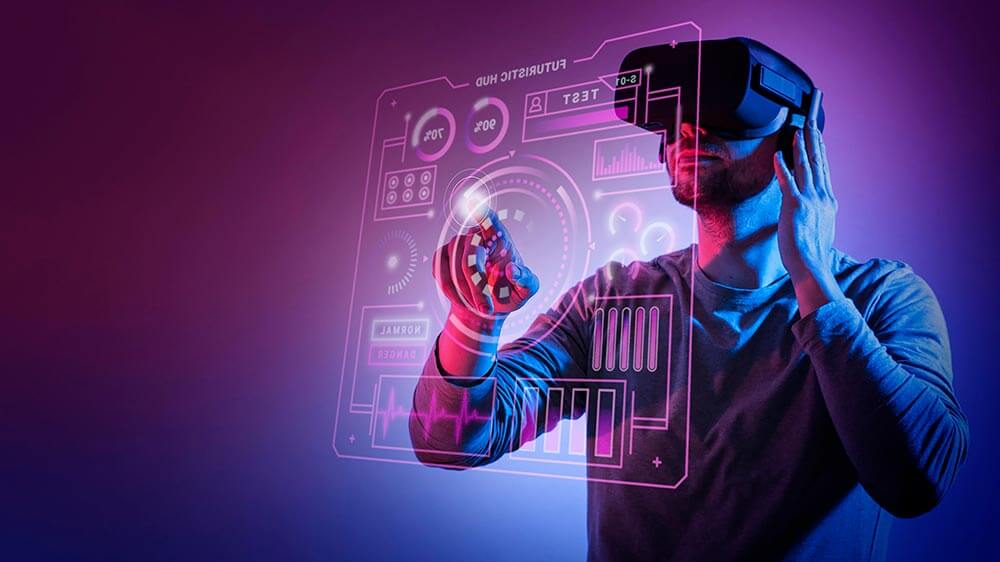The travel and tourism industry is undergoing a significant transformation with the integration of cutting-edge technologies that aim to enhance the overall travel experience and streamline various aspects of the traveler’s journey. From intelligent travel solutions prioritizing convenience and safety to implementing IoT and biometric technology in travel processes, technology is revolutionizing how individuals plan, experience, and engage with travel and tourism. Moreover, integrating virtual reality (VR) in tourism redefines how destinations are explored and marketed, offering immersive and interactive experiences that transcend traditional touristic encounters and foster a deeper connection between travelers and the goals they visit.
Smart Travel Solutions: Enhancing Convenience and Safety for Travelers
Innovative travel solutions are redefining how travelers plan and navigate their journeys, offering a range of technological tools and applications that prioritize convenience, safety, and efficiency. From intelligent travel booking platforms and itinerary management systems to real-time travel updates and safety notifications, innovative travel solutions empower travelers to make informed decisions and stay connected throughout their journeys. The integration of intelligent travel solutions simplifies the travel planning process and enhances the overall travel experience, ensuring a seamless and hassle-free journey for travelers worldwide.
IoT in Travel: Revolutionizing the Traveler’s Journey
Integrating the Internet of Things (IoT) in the travel industry has revolutionized how travelers interact with their surroundings and engage with various travel services and amenities. IoT-enabled devices and sensors facilitate real-time data collection and analysis, allowing travelers to access personalized recommendations, track their belongings, and receive proactive assistance during their journeys. From bright hotel rooms and connected transportation systems to customized travel experiences and location-based services, IoT technology enriches the traveler’s journey, offering a more immersive, interactive, and tailored travel experience that caters to modern travelers’ diverse needs and preferences.
Biometric Technology and Its Role in Streamlining Travel Processes
Biometric technology has emerged as a critical tool in streamlining various travel processes, offering secure and efficient identification and authentication solutions for travelers across different touchpoints. Biometric systems enable travelers to access specific check-in procedures, automated immigration processes, and seamless boarding experiences, minimizing wait times and enhancing overall travel efficiency. By leveraging biometric technology, airports, airlines, and other travel service providers can ensure passengers’ seamless and secure travel experience, fostering a more streamlined and stress-free travel environment that prioritizes safety, efficiency, and customer satisfaction.
Virtual Reality in Tourism
Integrating virtual reality (VR) in the tourism industry has transformed how travelers explore and engage with destinations, offering immersive and interactive experiences that transcend traditional tourism offerings. VR travel experiences enable travelers to virtually visit destinations, landmarks, and cultural attractions, providing a realistic and immersive preview of the travel experience before their visit. Moreover, virtual reality is pivotal in destination promotion and tourism marketing. It offers prospective travelers a glimpse into the unique offerings and experiences that await them, fostering a sense of excitement and anticipation that encourages travel and exploration.
Immersive VR Travel Experiences: Beyond the Traditional Tour
Immersive VR travel experiences go beyond traditional touristic encounters, offering travelers a deeper and more engaging exploration of destinations and cultural attractions. By enabling interactive storytelling, dynamic visualizations, and multisensory experiences, immersive VR travel experiences foster a deeper connection between travelers and the goals they visit, promoting cultural understanding and appreciation. VR technology allows travelers to delve into destinations’ history, heritage, and local traditions, fostering a more immersive and authentic travel experience that transcends geographical boundaries and cultural barriers.
Virtual Reality’s Influence on Destination Promotion and Tourism
Virtual reality’s influence on destination promotion and tourism marketing has revolutionized how destinations are showcased and marketed to prospective travelers, offering dynamic and engaging promotional campaigns that capture the essence and allure of travel destinations. By creating immersive and interactive promotional content, destinations can showcase their unique offerings, cultural attractions, and experiential activities, enticing travelers to embark on memorable and transformative journeys. Virtual reality is pivotal in inspiring travel enthusiasts, fostering a sense of wanderlust, and encouraging travelers to explore new destinations and embark on enriching travel experiences that broaden their horizons and perspectives.
Sum Up
Integrating technology in travel and tourism is reshaping the future of travel experiences with intelligent travel solutions, IoT, biometric technology, and virtual reality, redefining how travelers plan, adventure, and engage with destinations. By prioritizing convenience, safety, and immersive experiences, technology enhances the overall travel journey and fosters a more connected, inclusive, and enriching travel environment for travelers worldwide.












